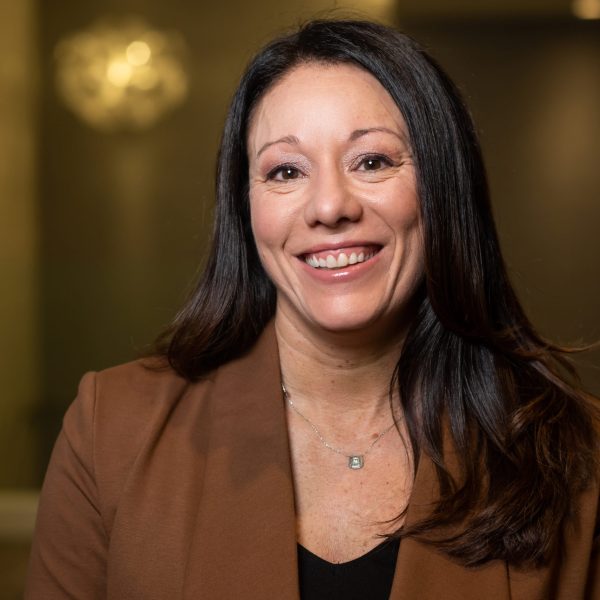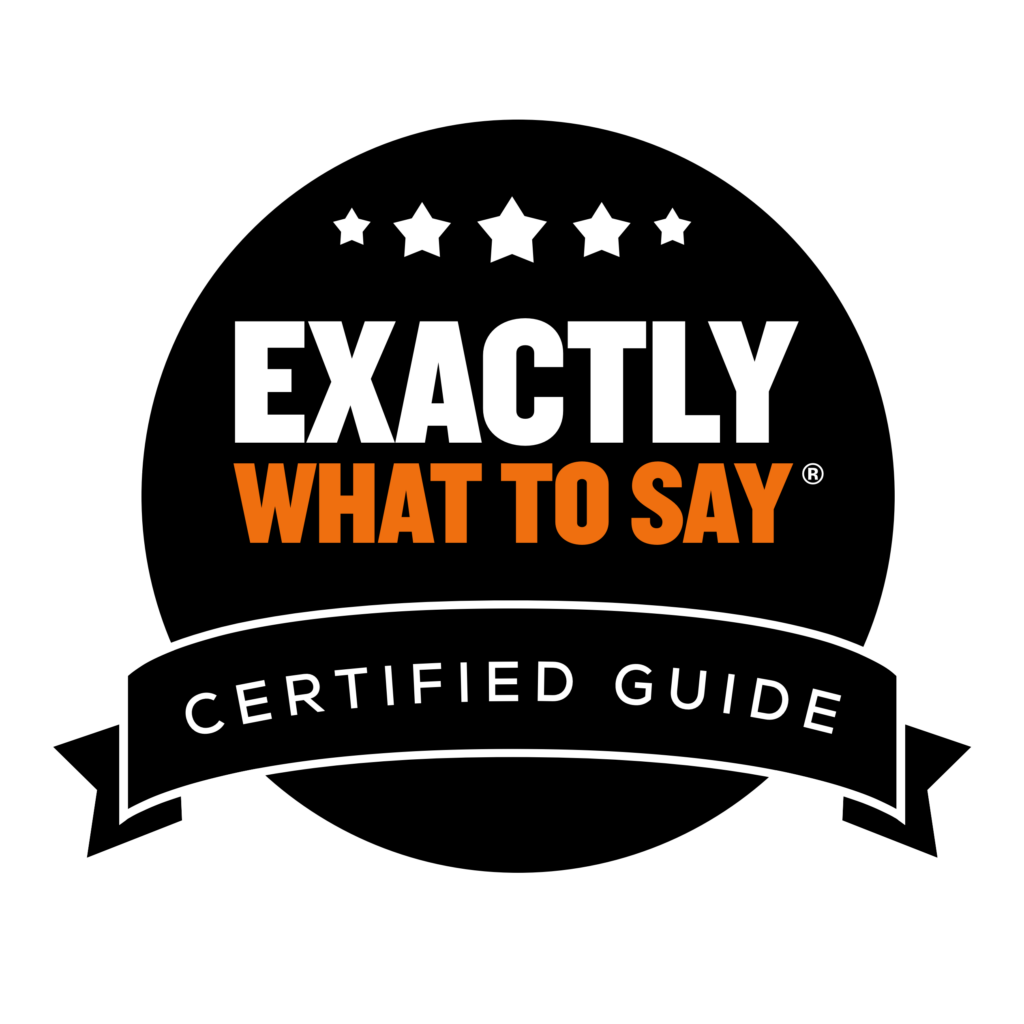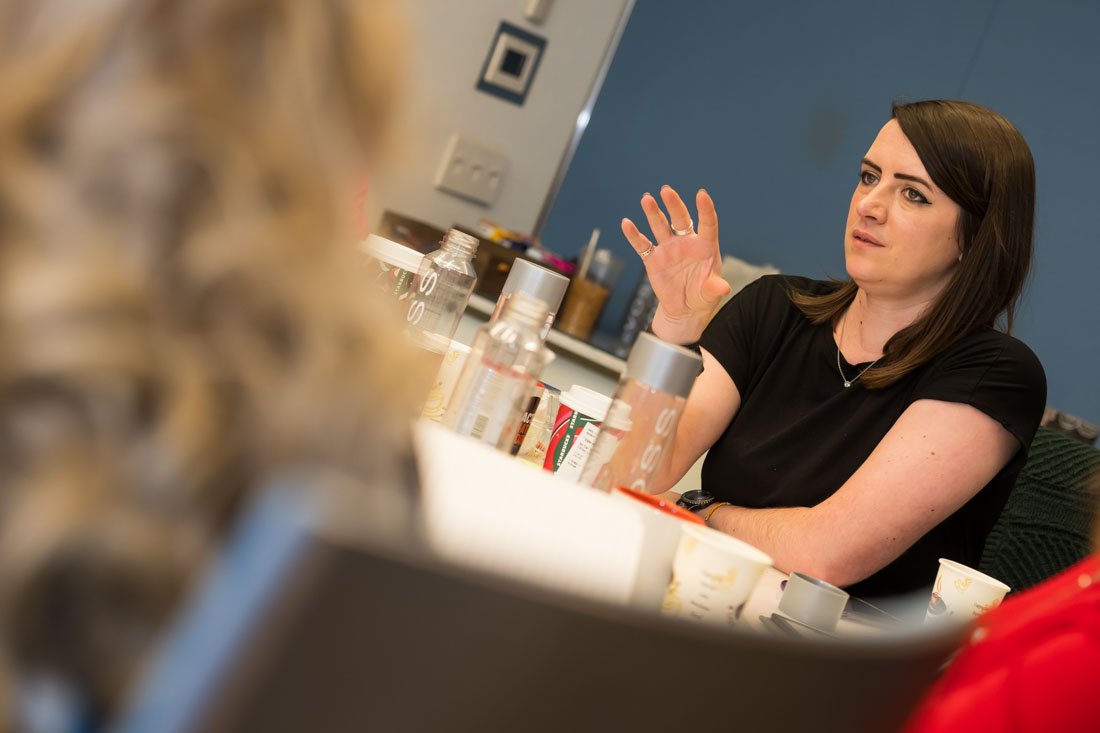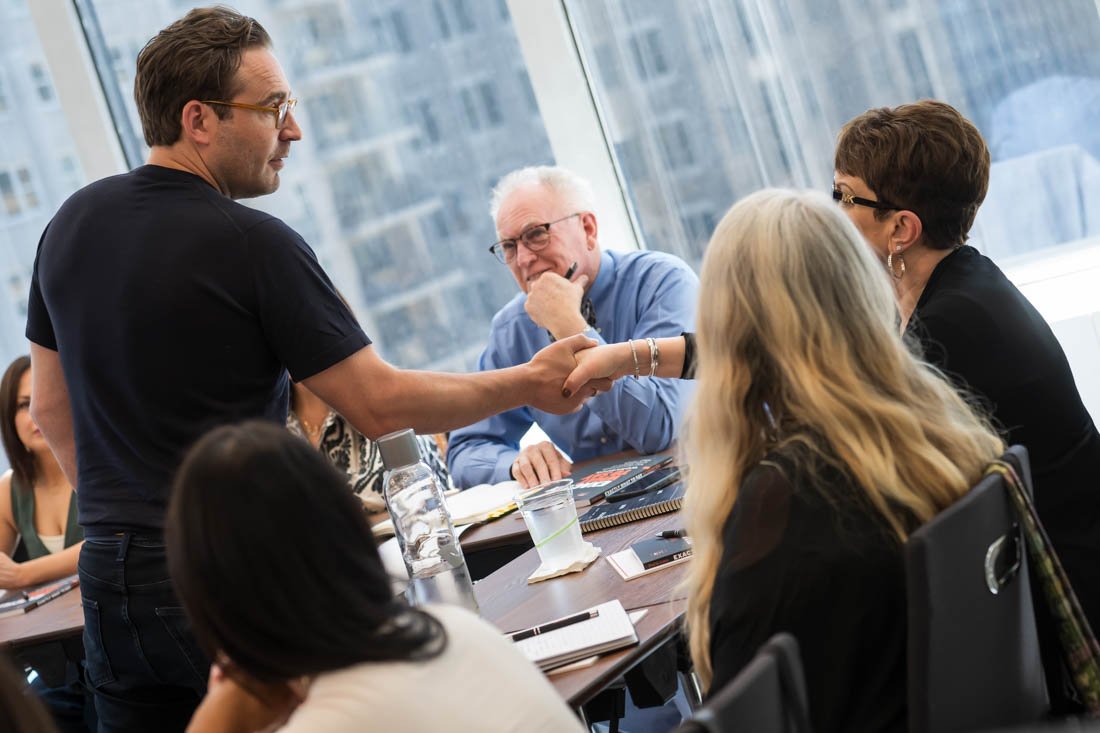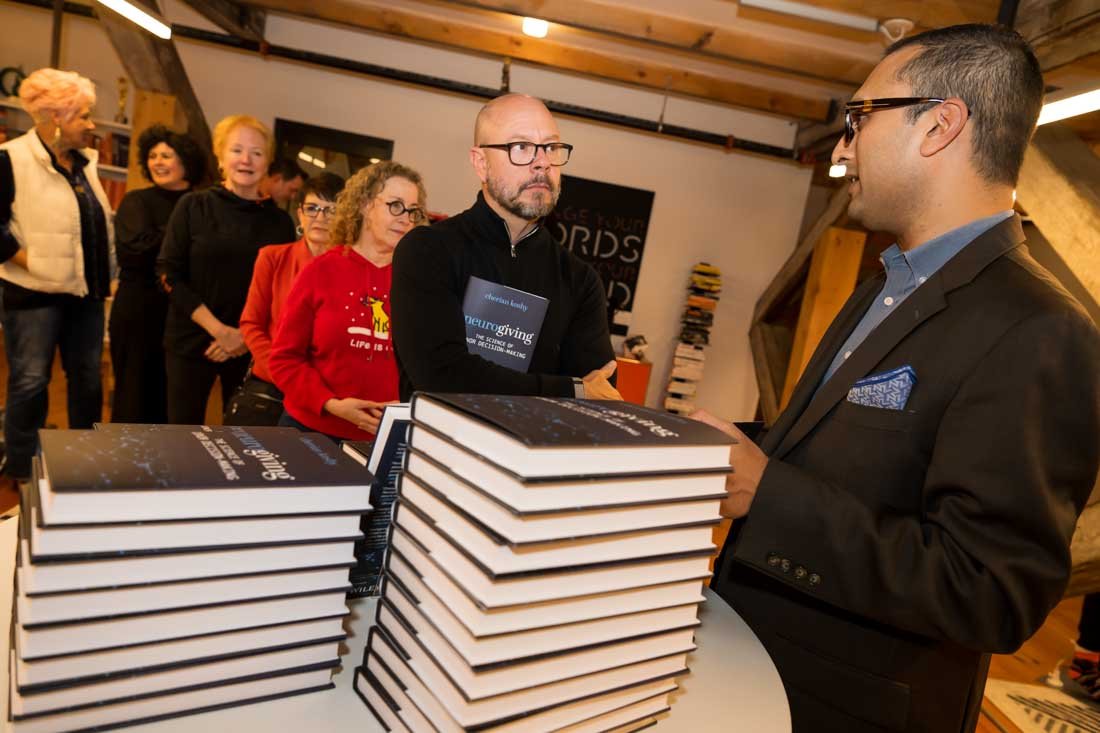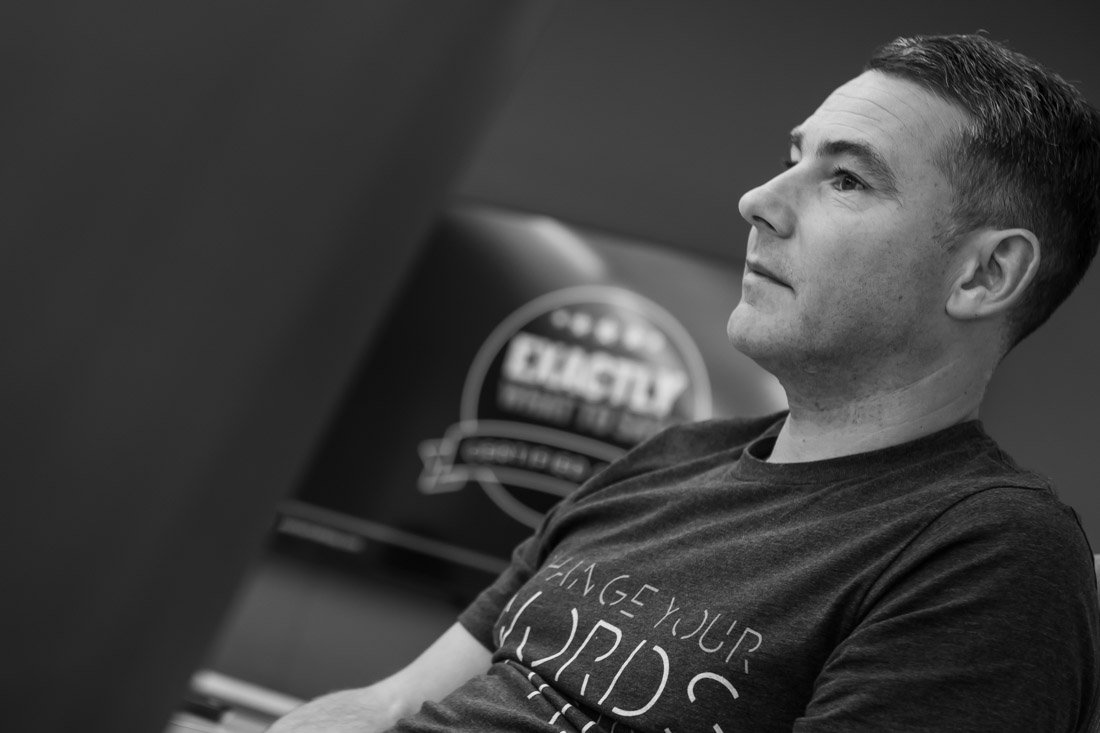Andrea Ferry is a coaching sales agent helping people improve their businesses by maximizing networking opportunities through meaningful conversation.
She recently held an EWTS Critical Conversations Webinar entitled How To Make Phone Calls To Win More Business, and this blog features just some of the highlights.
The Odds Are Ever In Your Favor
Andrea has spent the last 25 years making phone calls, and picking up the phone has changed her life. It can lead to fantastic opportunities and start exciting relationships.
Did you know that Apple might not have existed had Steve Jobs not picked up the phone and made a cold call to Hewlett-Packard?
When Steve was 12 years old, he called Hewlett-Packard (HP) co-founder Bill Hewlett and asked for spare parts to build a frequency counter. After a 20-minute conversation, Hewlett agreed to give him the spare parts – but also offered him an internship.
At just 12 years old, he walked away with the opportunity of a lifetime, and without that interaction, his whole life trajectory could have been very different.
Without that phone call, we might never have got the iPhone.
Steve Jobs learned a valuable lesson that day: When you ask people for help, people rarely turn you down.
Did you know that only 11% of salespeople ask for a referral, but a study found that after surveying clients, 91% would be happy to provide one?
Just imagine what could happen if you dared to ask and asked more often.
Could it be possible that you could increase your chances of getting a referral just by asking?
How To Overcome The Fear Of Rejection
Have you ever experienced caller reluctance or caller avoidance? You’re not alone.
This is a real fear called telephobia, and around 40% of the population suffer from it.
How do you get around caller reluctance? You might need to change your mindset.
How often do you screen phone calls? The next time you receive a call, answer it no matter who you think it might be. You can take a leaf from Andrea’s book and use it to your advantage.
Andrea does two things when she answers a cold call. Firstly, she reviews their pitch, and secondly, she finds out if she could sell them something instead.
What is your current mindset around making and receiving phone calls? Do you view it as a job necessity? Do you avoid making/taking them unless you absolutely have to?
Most people have the same issues when it comes to making calls: you don’t want to be too ‘salesy,’ you don’t know what to say, and you don’t know who to call.
And the worst fear that most people have is that they’ll be hung up on!
But, with a change in your mindset, could it be possible that a prospect hanging up on you is actually saving you time?
Try and think of it as they aren’t saying no. They are just saying no right now.
How To Position The Conversation: Client Agenda
When a salesperson heads into a Critical Conversation focused on their agenda instead of their clients, it should send a massive red flag.
Just imagine how many more successful sales calls you could make if you follow your client’s agenda instead of your own.
It is far better to be interested than interesting.
How do you position the conversation to your client’s agenda?
Don’t:
- Be tied to the outcome
- Use ‘how are you’ openings – this can derail the conversation
- Use lingo – if you use words that your prospect doesn’t understand, they might be too afraid to ask for clarification
Do:
- Listen, lean in, repeat, and affirm
- Ask questions – the person who asks the questions controls the conversation
- Use an Open Fact Question – this is my name, this is why I’m calling, and then ask your question
- Position the phone call around your client’s agenda and become a professional mind-maker-upper. Aim to say, “Based on the fact that you said X, I’m going to suggest Y.”
- Do keep it simple and use laymen’s terminology
- Practice on people who aren’t from your industry
How To Prepare In Advance For Objections
If you know what your objections might be, then you could plan your response.
The Pre-Brief Vs The De-Brief
Produce and practice a framework to use against your common objections. These are the objections that you know you’re going to get.
Facts Tell And Stories Sell
Most people relate to a story, and you can use a success story to tell your prospects about someone similar to them that you have helped. A story is identifiable and relatable.
Value Before Objection
Could it be possible that if you knew the objection in advance, you could avoid getting that objection? Learning how to overcome an objection before it is brought up in the conversation graduates you from a casual chequers player to a chess grandmaster.
Role Playing Increases Your Confidence
Did you know that the worst time to think about what you are going to say is in the moment that you’re saying it?
Choose your words carefully and be sure of their purpose. There’s nothing worse than the shoulda, woulda, coulda feelings of regret after tripping over your dialogue and not saying everything you intended.
Have you ever practiced a conversation in your head? Did it sound different when you said it out loud?
Could your head voice sound completely different from your spoken voice?
Your tone changes when you say things out loud. A statement that sounds great in your head might sound awful when you say it out loud, so you really need to practice your pitch.
There are several ways to do this. You could practice in front of a mirror, record yourself on your phone, or roleplay with a friend.
No matter how you do it, practicing ahead of time with someone who will give you honest feedback should help you win more business.
Get those reps in and know your scripts to take the pressure off your presentation.
Continue To Learn
They say that it takes 10,000 hours to become an expert, and Andrea has made approximately 35,000 prospecting calls.
But even with that in mind, she still regards herself as learning and is always ready to learn from others.
What could you learn from your prospect to make the call a success?
Turn your telling replies into curiosity questions. Take an objection, internalize it, and come back with a question.
Curiosity is the fuel for great conversations because questions lead to conversations. Conversations start relationships.
Those relationships create opportunities, and opportunities lead to action.
Professional Takeaways
If you’re like the 40% of the population that suffers from caller reluctance, you will need to work on changing your perspective and mindset when making calls.
Imagine not being afraid of making the call but feeling in control and prepared for every eventuality.
Remember to ask purposeful and curious questions to discover what really matters. Discover your prospective client’s agenda and prepare yourself for potential objections.
It’s much better to have a solid pre-brief than a derailed de-brief, so plan for every objection that might be raised.
Practice, practice, practice. How much time does a professional athlete spend practicing? You should be practicing more than your actual game time.
Some people make things happen, some people watch things happen, and some people ask what happened.
Which one are you?
This blog was part of a series of EWTS Critical Conversations Webinars, and if you want to experience the full webinar experience, you should sign up to hear what is coming up in the series.
Critical Conversations 31-Day Challenge

